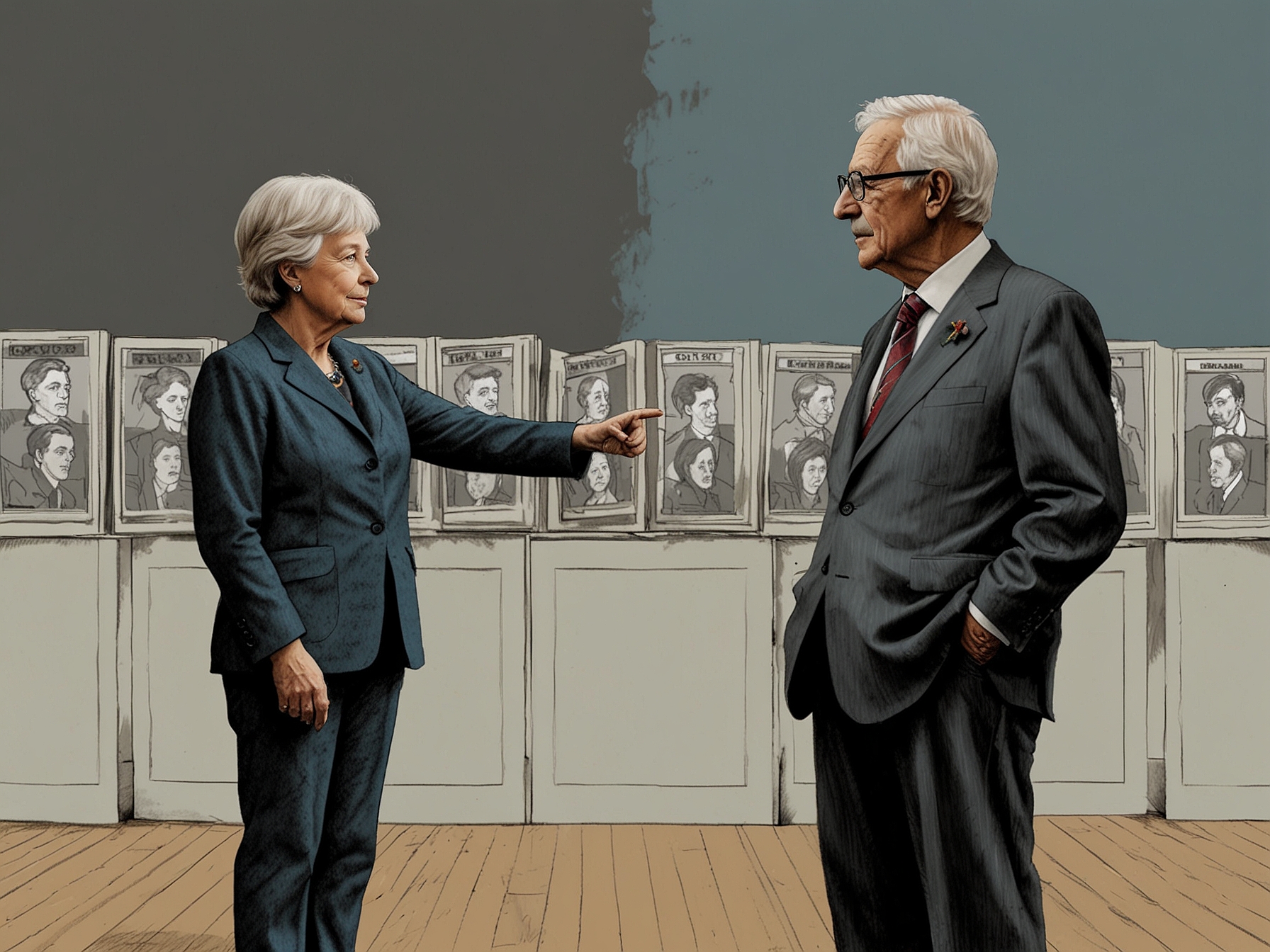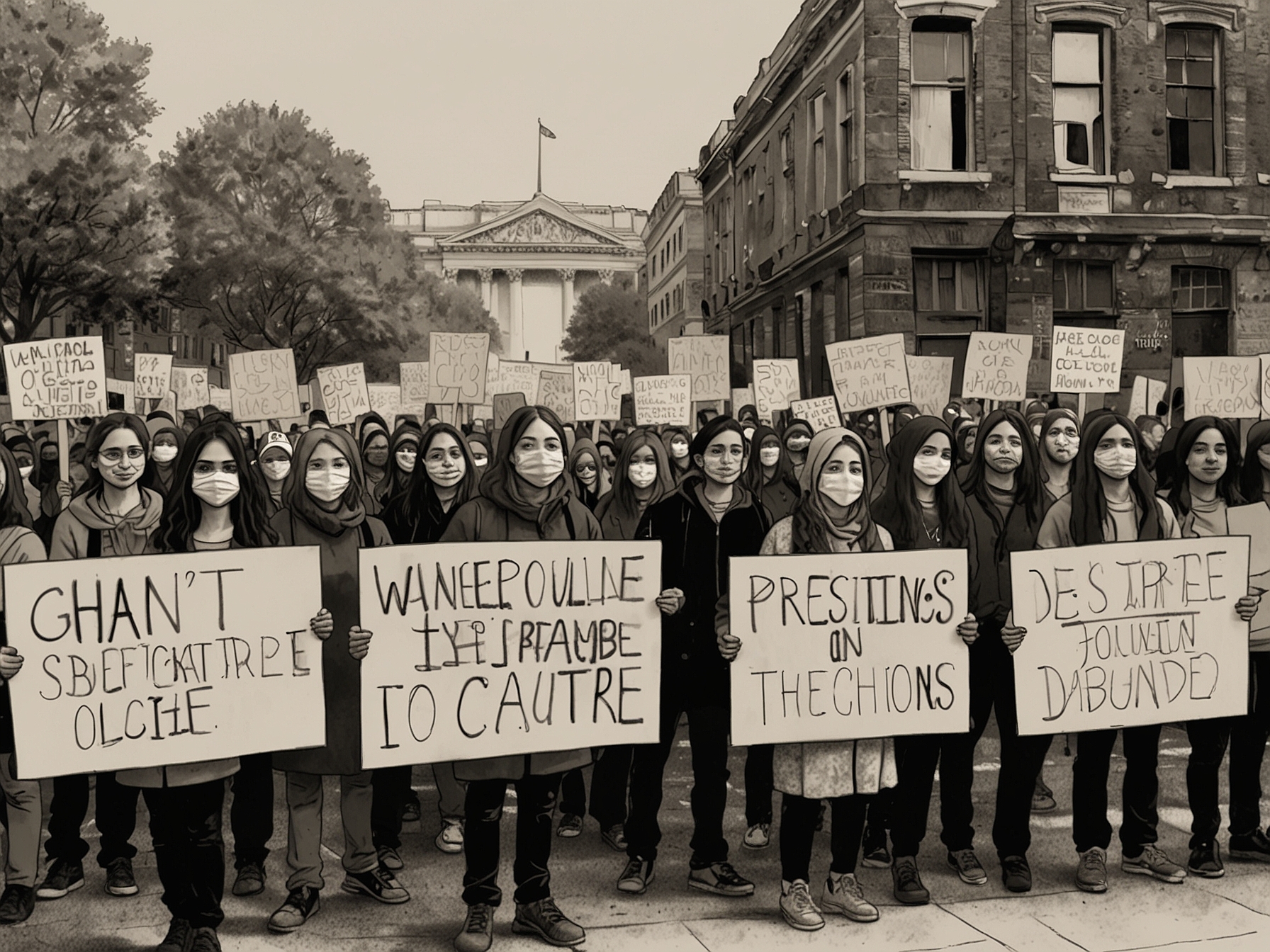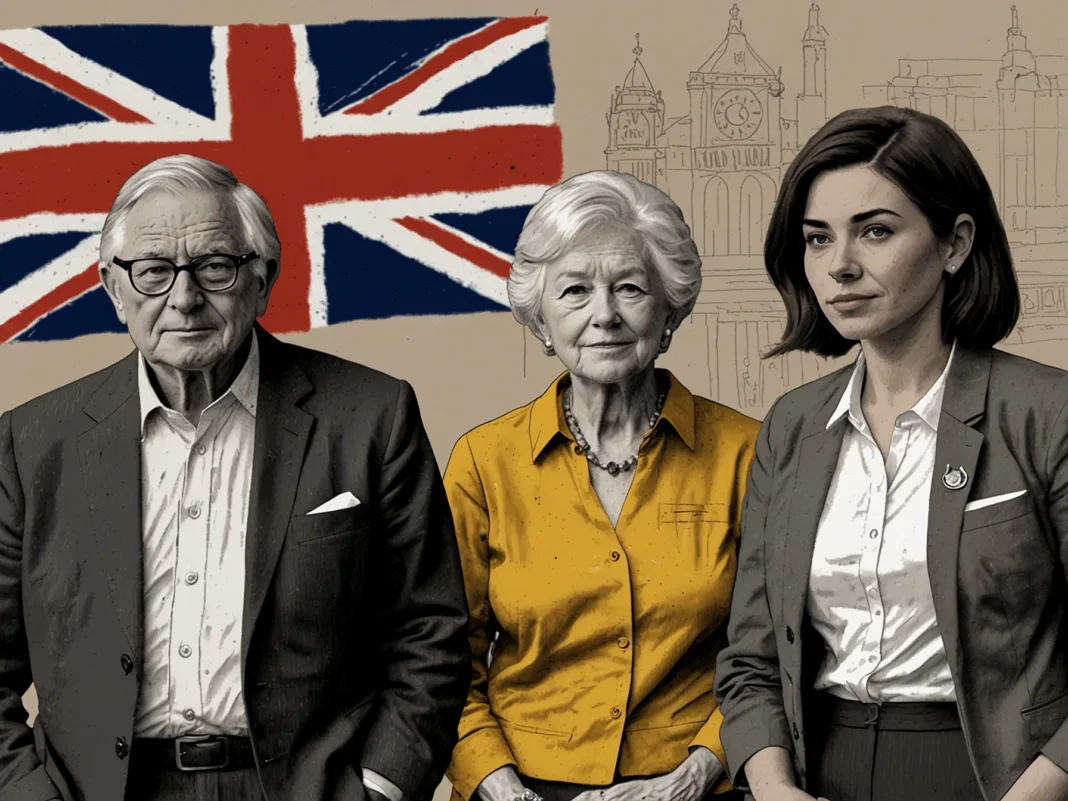British politics has always been a battleground of ideas and interests, but recent elections have highlighted a growing divide that transcends traditional party lines: age. This phenomenon, often referred to as the ‘boomer election’, underscores a schism between older and younger voters, with the latter frequently feeling overlooked by politicians and party platforms. Issues such as home ownership, pensions, and social security have dominated political discourse, raising the question: Are young people being listened to?

© FNEWS.AI – Images created and owned by Fnews.AI, any use beyond the permitted scope requires written consent from Fnews.AI
The frustration among younger voters is palpable. Many feel that their voices are drowned out by the concerns of older generations, whose interests seem to align more closely with the priorities set by political parties. Home ownership is a prime example of this. While young people struggle to climb the property ladder due to skyrocketing prices and stagnant wages, political manifestos largely focus on protecting and increasing the value of existing properties, a policy that benefits those who already own homes—predominantly older voters. This lack of attention to housing affordability and rental security leaves younger generations feeling alienated and disillusioned.
Moreover, the emphasis on pensions and social security often overshadows issues that are critical to younger demographics, such as education, climate change, and employment opportunities. The disparity is stark: while older voters are assured of their retirement plans and benefit schemes, young people are grappling with student debt, precarious job markets, and an uncertain future shaped by environmental crises. This imbalance in policy priorities underscores the perception that young people’s needs are secondary to those of their elders.

© FNEWS.AI – Images created and owned by Fnews.AI, any use beyond the permitted scope requires written consent from Fnews.AI
But it’s not just about policy; it’s also about representation. A cursory glance at the demographics of elected officials reveals a significant age gap. Older politicians, who are more likely to prioritize the interests of their contemporaries, dominate parliaments and government bodies. This lack of youth representation in decision-making roles perpetuates a cycle where the concerns of young people are continually sidelined. Young activists and leaders argue that without a seat at the table, their issues remain underestimated and unaddressed.
The media also plays a crucial role in shaping this narrative. Coverage often leans towards topics that resonate with older viewers, who make up a significant portion of both TV audiences and voters. This media bias not only influences public perception but also directs the political agenda, reinforcing the cycle of neglect towards younger voters. Young people, thus, find themselves in a media landscape that scarcely acknowledges their struggles or their solutions to current societal problems.
However, the political landscape is not static, and there are signs of change. Recent years have seen a surge in youth activism and voter engagement, driven by movements like Black Lives Matter, the global climate strikes inspired by Greta Thunberg, and campaigns against systemic inequalities. These movements have brought to the fore the power of young voices and the imperative for them to be heard. They have also pressured political parties to take notice and adapt their platforms to address issues that resonate with younger generations.
In response, some political parties have begun to court younger voters more aggressively, incorporating policies on climate action, mental health, and affordable education into their manifestos. Initiatives aimed at increasing youth participation in politics, such as lowering the voting age and promoting youth candidates, are also gaining traction. These efforts highlight a growing recognition that the success and legitimacy of any political system depend on its ability to engage and represent all segments of the population.
Nevertheless, skepticism remains. Young voters are wary of token gestures and demand substantive changes. They call for comprehensive reforms that address systemic issues rather than piecemeal policies that offer temporary relief. Real progress, they argue, requires a genuine commitment to intergenerational equity—a balanced approach that ensures every age group has a fair share in policy consideration and its benefits.
The future of British politics may well hinge on how effectively it can bridge this generational divide. As the electorate continues to diversify, acknowledging and addressing the unique challenges faced by young people becomes not just a matter of fairness but of political survival. Parties that fail to evolve risk alienating a significant and growing segment of voters, ultimately undermining their long-term viability.
In conclusion, the ‘boomer election’ reflects a critical juncture in British politics. The key to moving forward lies in embracing a more inclusive approach that listens to and acts upon the concerns of younger generations. Only through such inclusivity can we hope to build a political system that is truly representative and resilient. Whether or not young people are being listened to will shape the political, social, and economic future of the nation for years to come.
Was this content helpful to you?





